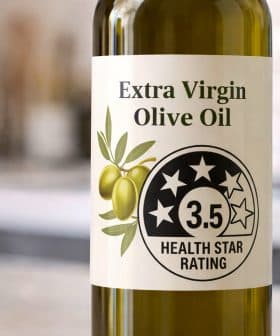Olive Extract Might Help Fight Arterial Stiffness, Study Finds
A recent Spanish study found that people who consumed higher doses of a standardized olive fruit extract fared better on an arterial measurement index and in measurements of mean triglyceride.
A recent Spanish study found that a standardized olive fruit extract called Proliva, high in hydroxytyrosol, may improve arterial elasticity, potentially reducing the risk of heart attack and stroke. The study showed that the high-dosage group experienced the greatest improvement in arterial stiffness and blood triglyceride levels, suggesting potential cardiovascular benefits of the olive fruit extract.
The chemical components of the olive fruit have long been known to the scientific community as providers of an array of cardiovascular benefits. Among others, the olive fruit is high in phenolic compounds with antioxidant properties.
A recent Spanish study found one more positive connection between human health and the olive fruit.
Hydroxytyrosol is an anti-inflammatory which reduces pro-inflammatory substances and increases the vascular nitrous oxide level.
This time, it was shown that the properties of a standardized olive fruit extract (S0FE), whose brand name is Proliva, might help improve the elasticity of the arteries, blood vessels that carry oxygen-rich blood from the heart to the tissues of the body.
The stiffening of arteries might bring on myocardial infarction and stroke, the two leading causes of death in the developed world. SOFE may work against these cardiovascular events.
SOFE contains hydroxytyrosol, a virgin olive fruit oil phenolic phytochemical with admirable health benefits, according to Guy Woodman, the general manager of EuroMed, which supplies Proliva.
“Hydroxytyrosol is an anti-inflammatory which reduces pro-inflammatory substances and increases the vascular nitrous oxide level. Research has shown it inhibits platelet aggregation stimulated by collagen and pro-inflammatory substances,” Woodman told Olive Oil Times.
“It is also a potent anti-oxidant that reduces LDL oxidation. Lastly, it reduces endothelial cell activation by reducing monocyte cell adhesion to endothelial cells in the vascular lining,” Woodman continued.
Euromed’s research that was published in the journal Drugs R&D tried to assess the impact of SOFE in subjects at risk for arterial stiffness. Researchers employed the so-called Cardio-Ankle Vascular Index (CAVI), an index which derives a stiffness parameter by plotting the natural logarithm of systolic-diastolic pressure ratio against the arterial wall extensibility. Then, they recruited 36 male and female subjects between 45 and 65 years for a double-blind, placebo-controlled study. Twelve out of the 36 subjects were assigned to each of the following groups:
Group 1: 250 mg SOFE — 50 mg active ingredient, hydroxytyrosol (dosage achieved with two capsules per day)
Group 2: 500 mg SOFE — 100 mg active ingredient, hydroxytyrosol (dosage achieved with two capsules per day)
Group 3: Placebo
Next, all men and women were followed for 11 days.
Scientists initially saw a decrease in CAVI scores for all three groups. Yet, the high-dosage group — Group 2 — enjoyed the greatest improvement in CAVI. This group’s CAVI scores plummeted from 11.02 to 8.91. Group 2 also exhibited an evident improvement in their blood triglyceride levels. Mean triglyceride levels of the high-dosage group decreased by 21.64 percent, the most remarkable reduction among all three groups.
The study concluded that the standardized olive fruit extract might help improve arterial elasticity, but agreed that a large-scale, longer-term study could better define the placebo effect.
The researchers also included a Visual Analog Scale (VAS) questionnaire as part of the study in order to examine various parameters of energy, such as tiredness, fatigue, and appetite, by which they were drawn to the further conclusion that SOFE was well tolerated.









